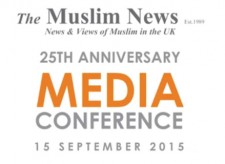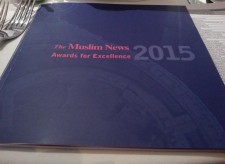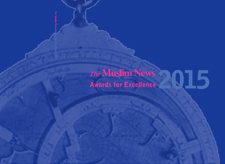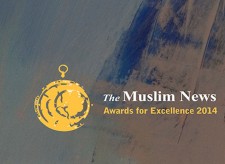Elham Asaad Buaras
Rohingya refugees in India have filed legal petitions seeking its intervention in curtailing anti-Rohingya hate content on Facebook.
In what is the latest in a long-running litigation cases brought by the persecuted Muslim minority groups against the social network giant in Asia, the plaintiffs cite 39 examples of anti-Rohingya posts in English, Hindi, and Bengali.
The petition, known in India as Public Interest Litigation [PIL], filed by two anonymous plaintiffs in the Delhi High Court, requests that the country’s regulators monitor Facebook users in India and remove “hate speech and harmful content” directed at the Rohingya people.
The Rohingya in India are largely concentrated in a handful of locations, with most living in the cities of Hyderabad, Jammu, Nuh, and Delhi. One Rohingya-led organisation reported that there are more than 90 Rohingya refugee settlements across India.
The Indian army is urged to “wipe out all Bangladeshis and Rohingya from Indian soil” in one of the Facebook posts presented as evidence. The petition also made note of a video in which Hindu nationalist Bharatiya Janata Party (BJP) Member of Parliament Thakur Raja Singh said, “Rohingya Muslims should be shot dead.”
The PIL, which was made public at the end of January, invoked Article 21 of the Indian Constitution, seeking protection of the right to life as members of their community in Delhi and throughout the country face violence, sometimes escalating to physical threats, because of the dissemination of violent hate remarks targeting them based on their ethnicity and religion on Facebook.
The petitioners of the PIL fled Myanmar due to ethnic violence, have been residing in New Delhi for the past 2 to 5 years, and have been issued valid identity cards by the UN Refugee Agency (UNHCR), which recognises the petitioners’ community as a persecuted community. UNHCR’s factsheet states that more than 21,000 Rohingya refugees live in India as of November 2022.
“The internal documents from Facebook and external reports available have repeatedly shown that misinformation, fake news, hate speech, and politically divisive content [on the platform, directed against the Rohingya community] have resulted in real-world violence, both in India and abroad,” the petition reads.
During court hearings, lawyers for the petitioners claimed that the platform’s “ecosystem” “magnified hate speech through its algorithm” because it was interested in prioritising engagement.
The Muslim Rohingya have been fleeing violence and persecution in Buddhist-majority Myanmar for decades, migrating to nearby Bangladesh and other countries, including India.
Having not signed the 1951 UN Refugee Convention, India views all Rohingya refugees, who have mostly lived peacefully in the country for decades, as undocumented “illegal” immigrants. Rohingya residents in India faced resistance following the election of Prime Minister Narendra Modi’s BJP in 2014.
Several hundred Rohingya have been arrested for illegal entry to India over the past six years, and dozens have been deported back to Myanmar.
Anti-Rohingya sentiment in India has increased, leading to violent attacks on the community. Activists say this trend is due to hate speech and misinformation spread on social media by far-right Hindu groups.
Activists point out that at least some of the outbreaks of fire in Rohingya colonies in India in recent years were hate attacks fuelled by Facebook content. According to one study, there were 12 unexplained fires in Rohingya settlements in India from 2016 to 2021. One of the fires destroyed 50 homes in Delhi in 2018, and a youth leader from the majority BJP party claimed responsibility for it on social media.
Facebook’s role in Rohingya persecution in Myanmar, Bangladesh, and Indonesia
The case in India is one of a long-running series of litigations and investigations into Facebook’s role in the persecution of Rohingyas. Eva Buzo, a barrister providing support for the petitioning counsel in India, said that repetition can be seen in the type of harmful content that was proliferating on Facebook against the Rohingya in Myanmar in the lead-up to the violence in 2017.
“This being an election year and considering that Facebook operates in a way that highlights political divisiveness, filing the petition now is a form of preventative action to prevent the situation of harmful content being spread about the Rohingyas in India, so that it does not reach a point of actual violence against them,” Buzo told The Wire.
Buzo was also involved in running a case in Ireland against Facebook for its role in the 2017 violence against the Rohingya.
In 2018, Marzuki Darusman, chair of the UN Independent International Fact-Finding Mission in Myanmar, stated that Facebook played a “determining role” in the Rohingya genocide.
“It has substantively contributed to the level of acrimony, dissension, and conflict, if you will, within the public. Hate speech is certainly, of course, a part of that. As far as the Myanmar situation is concerned, social media is Facebook, and Facebook is social media,” he said.
Facebook has been accused of enabling the spread of Islamophobic content that targets the Rohingya people. The UN Human Rights Council has called the platform “a useful instrument for those seeking to spread hate.”.
In September 2022, Amnesty International released a report accusing Facebook’s parent company, Meta, of “substantially” contributing to human rights violations perpetrated against the Rohingya in Myanmar.
In the report, Amnesty claims that Facebook’s algorithms “proactively amplified” anti-Rohingya content. It also alleges that Meta ignored civilians’ and activists’ pleas to curb hatemongering on the social media platform while profiting from increased engagement. The internet.org initiative was brought to Myanmar in 2015.
Myanmar’s recent democratic transition did not provide the country with substantial time to form professional and reliable media outlets free from government intervention.
Furthermore, approximately 1 per cent of Myanmar’s residents had internet access before internet.org. As a result, Facebook was the primary source of information, and without verifiable professional media options, Facebook became a breeding ground for hate speech and disinformation.
“Rumours circulating among family or friends’ networks on Facebook were perceived as indistinguishable from verified news by its users.”
Frequent anti-Rohingya sentiments included high Muslim birthrates, increasing economic influence, and plans to take over the country. Myanmar’s Facebook community was also unmonitored by Facebook, which at the time only had two Burmese-speaking employees.
The Myanmar armed forces had previously used Facebook to incite hatred against the Rohingya people, and they were currently “engaging in coordinated, inauthentic behaviour.”
On December 6, 2021, approximately 100 Rohingya refugees launched a $150 billion (£119 billion) lawsuit against Facebook, alleging that it did not do enough to prevent the proliferation of anti-Rohingya hate speech.
Sixteen Rohingya living in Bangladesh’s Cox’s Bazar refugee camp filed a complaint against Facebook on December 10, 2021, to the Irish National Contact Point for the OECD Guidelines for Multinational Enterprises, claiming that Facebook violated the guidelines and owed them compensation.
The lead complainants in the case included members of the Rohingya civil society group, Arakan Rohingya Society for Peace and Human Rights (ARSPH).
Mohib Ullah, who founded ARSPH and spearheaded efforts among camp-based Rohingya refugees to hold Facebook accountable, had been murdered just over two months before.
On December 27, 2023, hundreds of students from various universities in Aceh, Indonesia, such as Abulyatama University, Bina Bangsa Getsempena University, and the University of Muhammadiyah Aceh, stormed a shelter for Rohingya refugees and forced them out of a convention centre in the city of Banda Aceh, demanding they be deported.
They were also seen burning tyres and chanting various anti-Rohingya slogans, allegedly fuelled by anti-Rohingya Facebook posts.
Photo: In a 2022 report, Amnesty accused Facebook’s parent company, Meta, of “substantially” contributing to human rights violations perpetrated against the Rohingya in Myanmar. (Credit: Tamara-Jade Kaz/Amnesty)
Photo 2: Marzuki Darusman, Chair of the Independent International Fact-Finding Mission on Myanmar, ruled that Facebook played a “determining role” in the Rohingya genocide. (Credit: Violaine Martin/Geneva UN)
Photo 3: Map of Rohingya populations in India as per UNHCR’s statistics. Areas with larger Rohingya populations are shaded in dark blue, while areas with smaller populations are lighter. Areas with no registered Rohingya population are shown in pale blue. (Credit: Mixed Migration Centre Report)
















